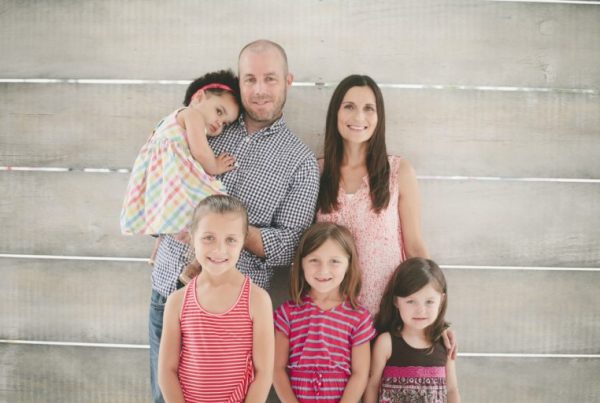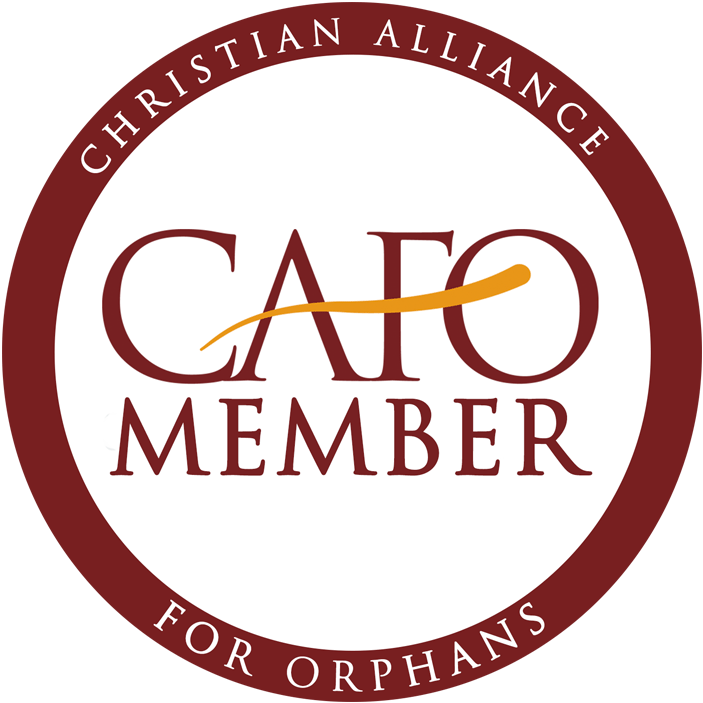
Today’s conversation is hard. I just need to tell you that from the get-go. Foster care always comes with some level of brokenness—that I’ve come to recognize. I wish that brokenness wasn’t a thing. I wish we were living in a world that didn’t know sadness or pain. As I listened to Bianca tell her story of enduring sexual abuse and then entering foster care, I felt the heaviness with her. She suffered at the hands of those meant to protect her, and her story doesn’t have the ending that I wish it did. Yes, Bianca has gone on to do incredible things, to achieve in ways that showcase her commitment and drive. I wanted more closure for her. I wanted justice to work itself out in her story. I wanted Bianca to tell me that though she experienced incredible pain and shame because of sexual abuse, that she has been vindicated under the law. I am thankful for Jesus working in her life. I am thankful for the therapy she received. I am thankful that she sees the purpose in her pain, that God showed her she had to keep going, to be a beacon of light to others. I am thankful for the education and success she has had. And I grieve that she suffered. I need you to listen with me, to sit with me in her story, so that we can walk away with a better understanding of how we might be able to step in, to identify warning signs for other children, and to know how to walk with victims.
HERE ARE MY 3 TAKEAWAYS FROM OUR CONVERSATION:
1. We must teach children about healthy touch early and often.
From age 5 to 10, Bianca lived under a false reality that intimate touches were normal for a child to endure. The pain and shame she felt seemed normal. She didn’t realize that this wasn’t how her dad or babysitter’s granddaughter or cousin was supposed to interact with her. It happened too often for it to be abnormal. It seemed as if the pain was an unavoidable part of life. Acting out in school—earning her the title of the “bad kid”—was her way to cope. If she was the aggressive one, maybe her pain could be someone else’s. As the “bad kid,” she was moved to an alternative school setting, and there, she first understood that abuse wasn’t okay. In a class with five other young ladies, she shared—they all shared—their stories of abuse. I hate that it was a story they all experienced, and I’m thankful they had a space to share.
“Life unbeknownst to me was a life full of abuse.”
2. We have to be willing to ask why a child’s behavior is destructive.
Bianca wasn’t looking to enter foster care when she told her story. She wasn’t thinking that would be her trajectory. Her understanding of foster care was that it was for children whose parents didn’t want them, died, or were on drugs—none of which were her scenario. She didn’t understand that what was happening to her was a criminal act. But slowly, she began to get more insight. She began to see more of the manipulation that was happening from her dad, and she decided to decline visits with him and then later her mom as well. Passed from attorney to attorney, it felt like her time for justice would never come, but she remained hopeful. Five years passed and still no justice and still more hurt and pain that she acted out through her behavior. Affidavits signed by family and former teachers discrediting her, key witnesses unable to be found, and character evidence conjured up in defense of her dad, and her case was dismissed. She was again labeled as the “bad girl.”
“All the things that were said [of my behavior] were true, but no one took the time to think: why was it true?”
3. We have to believe that God does not delight in but can use evil for good.
The more Bianca shared, the more I understood how brave she was in opening up with me. Bianca has lived most of her life in shame, suppressing the harsh realities of what has been done to her. She didn’t want to share it with anyone for so many reasons. Would anyone believe her? Out of sight, out of mind. I have to protect my family. She has carried the weight of it all. And yet, she has now found healing in her relationship with God. She believes it’s the reason she’s here. She doesn’t want this tragedy, this evil, to overtake anyone else. She knows she has purpose. Her pain is not good, but God is good, and she can use what has happened to help others. It’s her passion and drive now. She has a story to share so that others can know they don’t have to be defined by their past.
“God showed me that it wasn’t happening to me; it was happening for me. I had to keep going. It was my responsibility to be a beacon of light to others.”

Meet Our Guest
Get encouragement and updates in your inbox.
Be the first to know about new episodes, posts, resources, and stay in the loop about what’s coming up.
Other Episodes You Might Enjoy:









